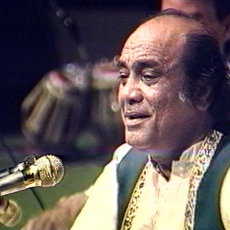Here as the ship proceeds deeper and deeper in the Arabian
Ocean, eyes could see nothing but the water and water all the way around.
Dominating waves clash the vessel quite often and ocean shows a bit of its
enormous power as the warship weighting more than three thousand tones swings
as if a petty petal on a peaceful lake.
While on my first ever sea voyage in life, my eyes stay wide
open in search of at least something land-like on that line joining the waters
and the sky; my ears stand up to receive at least some pinch of the voice other
than that of the vigorous roars of waves collapsing on the iron walls of the
ship; and my senses stay alert to receive at least some other feel than that of
the humid, salty wind blowing through the sea. Search goes on, but nothing
other than the sea can be seen, can be heard or can be felt while roaming deep
into the Kingdom of Sagara. Miniscule in front of the strength of the ocean,
here, we humans are on the mercy of Lord Varuna.
While some men in Royal Navy Blue uniform boast to be the
men of Lord Varuna himself. These are the members of Indian Navy. They are
fearless, soft-spoken, well learned, and well behaved. They are disciplined
gentlemen and intelligent decision makers. They are confident, but not
careless; strong but not aggressive; and light-hearted but prepared for every
situation. As I sail through Arabic Ocean with them in INS Sharada, a proud
feeling of being an Indian roars harder than the mighty waves in my heart. Our
men are committed, busy in the practice and ready to help. They have earned the
respect of world Navy for their gentlemanly conduct and polite behavior. But
the thing that takes our men towards the higher level than any other force in
the world is their indomitable faith on Lord Varuna, their supreme savior. No
other Navy in the world has the divine interference but Indians do have. Thanks
to the rich cultural heritage of India.
Indian Navy has ‘Shan No Varuna’ (May Lord Varuna Protect
Us); a Sanskrit expression from ‘Rigveda’ as its motto. The Maritime Warfare
Centre In Kochin, where the Naval officers and sailors are groomed strong for
the stronger naval security system; the Sanskrit verse ‘Yuddhasya Abhyase Raneh
Vijayashree’ (Rigorous practice insures victory in war) is written as
motivation. Indian Cost Guards those who work day and nights to protect our
seashores have ‘Vayam Raksham’ (We protect), another Sanskrit expression as
their motto.
As we walk through the Naval estate in Kochi, the Sanskrit
and spiritual quotes can be found written at many places and this is why our
men in armed forces are so spiritually motivated. INS Dronacharya, a school
where the naval officers are trained for gunnery and high-end weaponry. The
motto of this school is ‘Kuru Prahar Prathame’, another Sanskrit expression
meaning ‘Hit first’. Whether be the names of our missiles or be the names of
our warships, all are inspired by our cultural heritage and all our men,
irrespective of religion and caste, seek inspiration from the culture itself.
While being with the Naval officers and sailors, my respect
for our spiritually rich culture raises for hundreds of thousand times as it is
our ancestral heritage, that has kept motivating our forces over the years.










.JPG)
